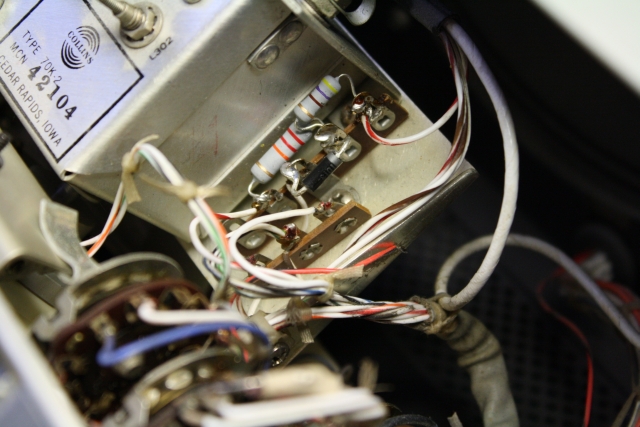The Collins KWM-2 transceiver and its 312B-5 companion are equipped with a fantastically stable and reliable yet small permeability tuned oscillator (PTO). The only real drawback of this PTO is that its output frequency is slightly dependent on the supply voltage.
When I had my PTO on the bench for relubrication, I was able to measure this dependence with a variable power supply. Varying the supply from 100 to 200 Volts changed the output frequency by about 310 Hz or 3.1 Hz per Volt.
The nominal 275 Volt supply voltage inside the KWM-2 changes quite a bit between receive and transmit operation. In my KWM-2 I measured 301 V in RX mode and 277 V in TX mode. The resistive divider R73 / R101 with 15K and 33K Ohms translates this into a supply voltage change from 207 V to 190 V for the PTO. And this translates into a frequency change of about 53 Hz. Of course, this is too much for "being on frequency".
A 50 Hz shift between receive and transmit frequencies might have been acceptable in the early days of SSB, but very soon it became clear that a remedy was needed. And this seems to be the origin of the unofficial "Vietnam" or "#11b" mod for the KWM-2. This is best described in "The Signal Newsletter" of 4th Quarter 2001, issued by the Collins Collectors Association.Of course, the PTO in the 312B-5 needs the same stabilizing circuit. The installation is even easier as compared to the KWM-2. Just next to the PTO box there is a nice terminal strip from where the two resistors R401 (15K) and R 402 (33K) should be removed and two new resistors and the 150V Z-diode (I used a 1N5383) can be placed.
Just have a look at this photo from inside the 312B-5:

to top of page